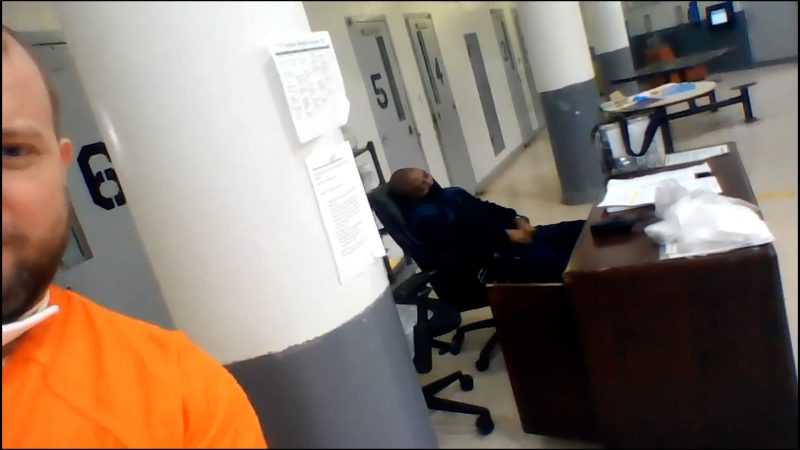In the recent legal proceedings following the events of January 6th at the U.S. Capitol, a striking incident captured attention when a video posted by an attorney representing a defendant showed a D.C. jail guard allegedly sleeping on the job. The footage raised concerns about the oversight and security measures in place for the individuals detained in connection with the Capitol insurrection.
The video, shared by defense attorney Jonathan Jeffress, revealed a guard appearing to be asleep at a desk inside the D.C. Department of Corrections facility. Jeffress expressed outrage over the situation, highlighting the potential risks and implications of such negligence within a high-security environment. The attorney’s decision to make the footage public reflects a growing unease among legal representatives and advocates regarding the treatment and safety of detained individuals in light of heightened political tensions.
This incident underscores broader issues facing the U.S. criminal justice system, particularly in managing high-profile cases with significant security concerns. The fallout from the January 6th events has placed a spotlight on the procedures for handling defendants linked to politically charged offenses and the importance of upholding due process while ensuring the security of all involved parties.
The response to the video has been mixed, with some viewing it as a wake-up call to address systemic flaws in detention facilities’ operations, while others question the motives behind publicizing internal security lapses. The role of defense attorneys in advocating for their clients’ well-being and fair treatment during legal proceedings is crucial, exemplified by Jeffress’s decision to shed light on the guard’s actions.
In the aftermath of January 6th, the Capitol riot defendants have faced intense scrutiny and legal repercussions, sparking debates over the nature of justice and accountability in a polarized sociopolitical landscape. The circulation of videos like the one shared by Jeffress serves as a reminder of the complexities and challenges involved in navigating such turbulent legal waters while upholding fundamental principles of justice and security.
As the legal process unfolds and more details come to light regarding the January 6th defendants’ cases, the incident involving the sleeping jail guard stands out as a poignant illustration of the myriad issues at play. It prompts reflection on the broader implications of ensuring a fair and secure legal environment for all involved, regardless of the circumstances surrounding their detainment. The pursuit of justice in the wake of unprecedented events requires vigilance, transparency, and a commitment to upholding the rule of law in the face of adversity.


























